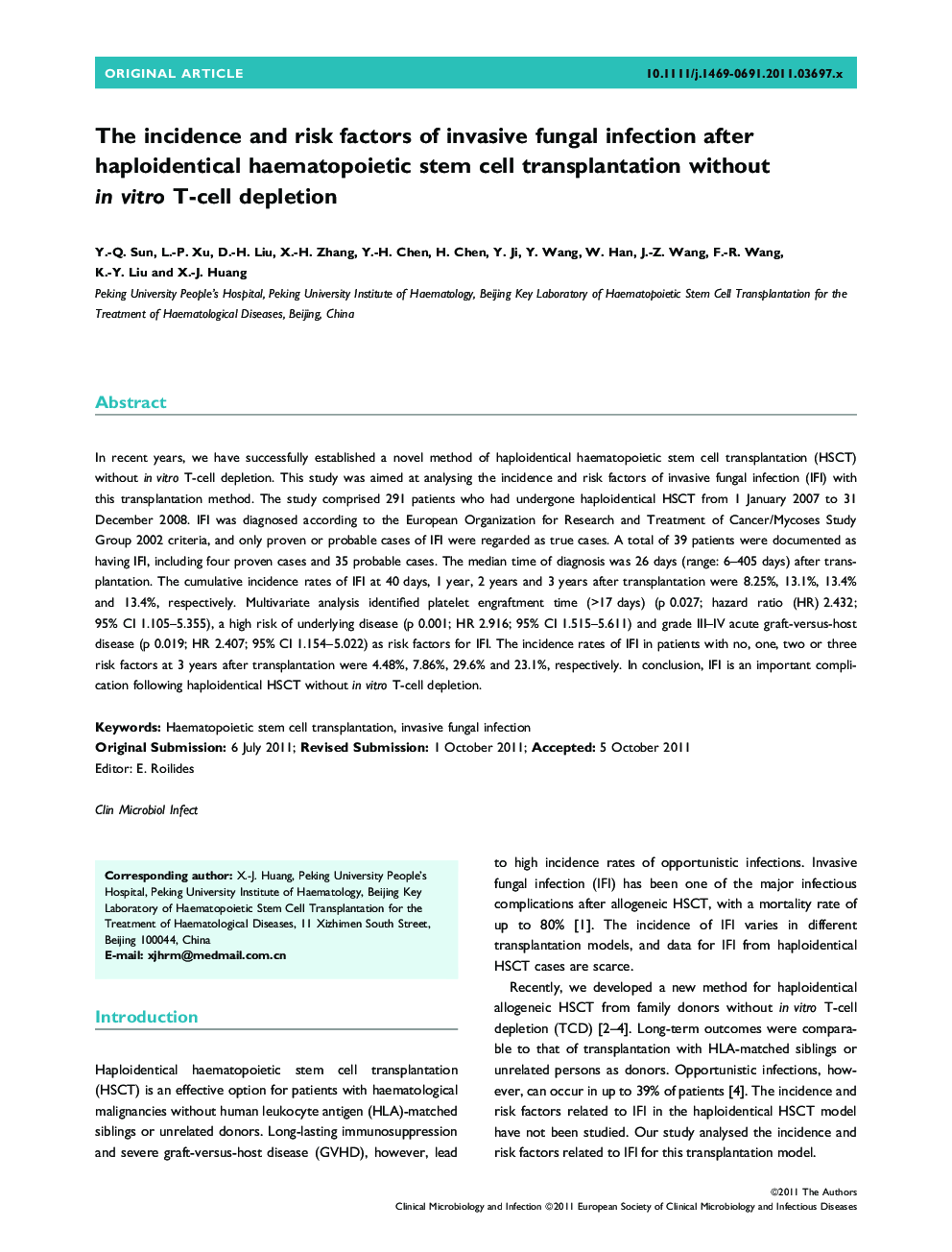| Article ID | Journal | Published Year | Pages | File Type |
|---|---|---|---|---|
| 6130840 | Clinical Microbiology and Infection | 2012 | 7 Pages |
Abstract
In recent years, we have successfully established a novel method of haploidentical haematopoietic stem cell transplantation (HSCT) without in vitro T-cell depletion. This study was aimed at analysing the incidence and risk factors of invasive fungal infection (IFI) with this transplantation method. The study comprised 291 patients who had undergone haploidentical HSCT from 1 January 2007 to 31 December 2008. IFI was diagnosed according to the European Organization for Research and Treatment of Cancer/Mycoses Study Group 2002 criteria, and only proven or probable cases of IFI were regarded as true cases. A total of 39 patients were documented as having IFI, including four proven cases and 35 probable cases. The median time of diagnosis was 26 days (range: 6-405 days) after transplantation. The cumulative incidence rates of IFI at 40 days, 1 year, 2 years and 3 years after transplantation were 8.25%, 13.1%, 13.4% and 13.4%, respectively. Multivariate analysis identified platelet engraftment time (>17 days) (p 0.027; hazard ratio (HR) 2.432; 95% CI 1.105-5.355), a high risk of underlying disease (p 0.001; HR 2.916; 95% CI 1.515-5.611) and grade III-IV acute graft-versus-host disease (p 0.019; HR 2.407; 95% CI 1.154-5.022) as risk factors for IFI. The incidence rates of IFI in patients with no, one, two or three risk factors at 3 years after transplantation were 4.48%, 7.86%, 29.6% and 23.1%, respectively. In conclusion, IFI is an important complication following haploidentical HSCT without in vitro T-cell depletion.
Related Topics
Life Sciences
Immunology and Microbiology
Microbiology
Authors
Y.-Q. Sun, L.-P. Xu, D.-H. Liu, X.-H. Zhang, Y.-H. Chen, H. Chen, Y. Ji, Y. Wang, W. Han, J.-Z. Wang, F.-R. Wang, K.-Y. Liu, X.-J. Huang,
